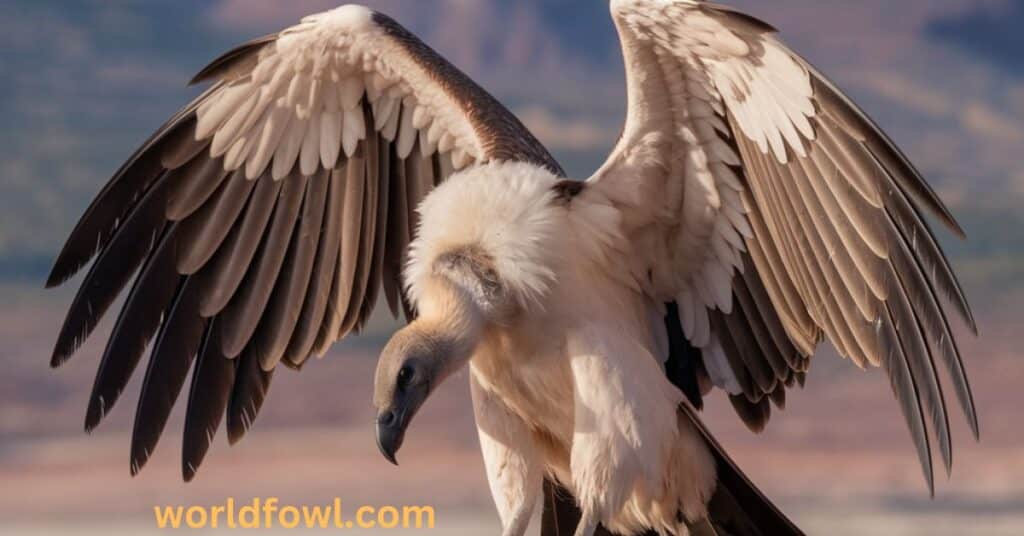Do vultures attack humans? When we think of vultures, images of ominous birds circling overhead often come to mind. But do these scavengers pose a real threat to humans? Let’s dive into the fascinating world of vultures and separate fact from fiction.
Introduction: The Misunderstood Scavengers
Vultures are nature’s clean-up crew, playing a crucial role in our ecosystems. These birds have been around for millions of years, evolving to become efficient carrion eaters. Despite their importance, vultures often get a bad rap due to their appearance and feeding habits.
Many people wonder: Do vultures attack humans? The short answer is no, vultures generally don’t attack people. But there’s much more to the story. Let’s explore the truth about these remarkable birds and why understanding their behavior matters.
The Importance of Vultures in Ecosystems
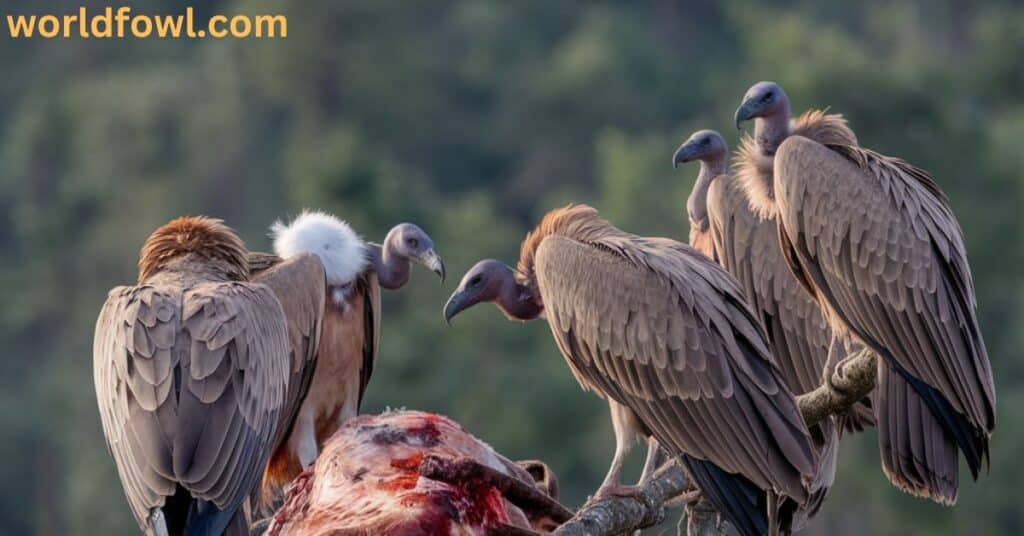
Vultures are keystone species in many ecosystems. Their role as scavengers helps to:
- Prevent the spread of diseases by consuming carcasses
- Recycle nutrients back into the environment
- Clean up landscapes, reducing foul odors and unsightly remains
- Support other scavengers by locating food sources
Without vultures, ecosystems would face significant challenges in managing decomposing matter and controlling disease outbreaks.
Common Misconceptions About Vultures
Several myths surround vultures attack human , contributing to their negative image:
- Myth: Vultures are dirty and spread diseases.
- Fact: Vultures have strong immune systems and their digestive acids kill most pathogens.
- Myth: Vultures are aggressive and vultures attack humans living creatures.
- Fact: Vultures are generally shy and prefer to avoid confrontation.
- Myth: Vultures circle dying animals, waiting to attack.
- Fact: Circling behavior is related to searching for food or riding thermal air current
Understanding these misconceptions is crucial for appreciating the true nature of vultures and their ecological importance.
you can also read : Finches in North Carolina – The Complete Guide
Vulture Species and Their Habitats
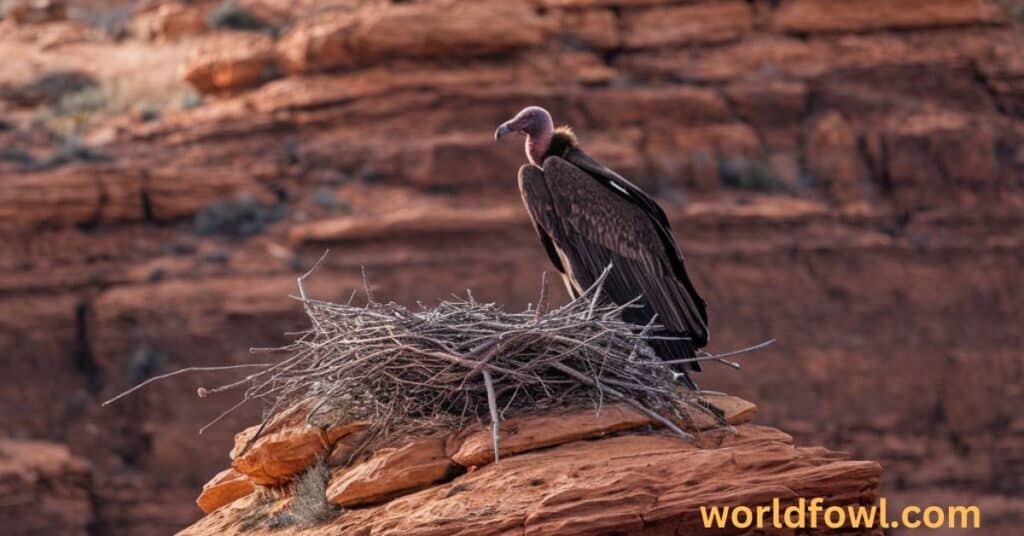
Before we delve deeper into vulture behavior, it’s essential to understand the different types of vultures and where they live .”vultures attack humans”
Old World Vultures
Old World vultures are found in Africa, Europe, and Asia. They belong to the family Accipitridae, which includes eagles and hawks. Some well-known species include:
- Egyptian Vulture (Neophron percnopterus)
- Lappet-faced Vulture (Torgos tracheliotos)
- Bearded Vulture (Gypaetus barbatus)
Old World vultures primarily use sight to locate food, as they lack a well-developed sense of smell. They have distinctive bald heads, which help them stay clean while feeding on carcasses.
New World Vultures
New World vultures attack human are native to the Americas. They belong to the family Cathartidae and are not closely related to Old World vultures. Common species include:
- Turkey Vulture (Cathartes aura)
- Black Vulture (Coragyps atratus)
- California Condor (Gymnogyps californianus)
- King Vulture (Sarcoramphus papa)
- Andean Condor (Vultur gryphus)
Unlike their Old World counterparts, New World vultures have a keen sense of smell, which they use to locate carrion. The Turkey Vulture, in particular, is known for its exceptional olfactory abilities.
you may also like : Finches In Texas – The Complete Guide To Texas Finches
Geographic Distribution and Preferred Environments
Vultures are adaptable birds found in various habitats, from deserts to forests. Here’s a quick breakdown of where you might encounter different vulture species:
| Vulture Type | Preferred Habitat | Geographic Range |
| Turkey Vulture | Open areas, forests | North and South America |
| Black Vulture | Woodlands, urban areas | Southeastern US to South America |
| Griffon Vulture | Mountains, grasslands | Europe, Asia, North Africa |
| Egyptian Vulture | Arid regions | Southern Europe, Africa, India |
| California Condor | Mountainous regions | California, Arizona, Utah |
| King Vulture | Tropical lowland forests | Southern Mexico to northern Argentina |
Vultures have adapted to a wide range of environments, from sea level to high-altitude mountain ranges. Their ability to thrive in diverse habitats is one of the reasons they play such a crucial role in so many ecosystems.
Vulture Behavior: Debunking the Myths
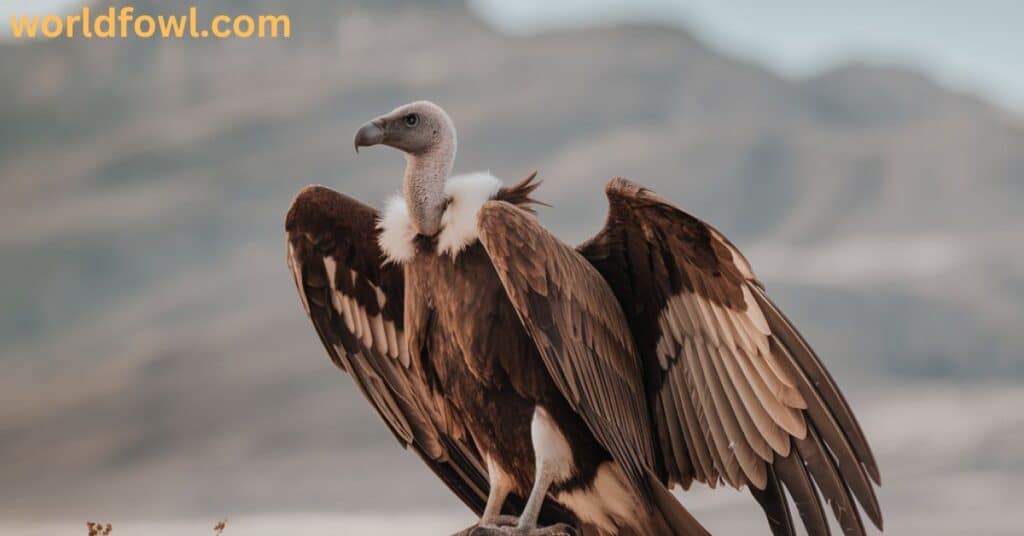
Now, let’s address the burning question: Do vultures attack humans? To answer this, we need to examine vulture behavior and separate fact from fiction.
Do Vultures Really Attack Humans?
The simple truth is that vultures attacking humans is extremely rare. These birds are primarily scavengers, not predators. They’ve evolved to feed on dead animals, not living ones.
Historical Accounts and Their Validity
While there are some historical accounts of vulture attacks on humans, most of these stories are either exaggerated or misunderstood. For example:
“In 1942, a Turkish newspaper reported that vultures had attacked and killed a man. However, further investigation revealed that the man had died of natural causes, and the vultures were simply doing their job as scavengers.” – Dr. Emily Blackwell, Ornithologist
Many such reports can be attributed to a misunderstanding of vulture behavior or sensationalized storytelling. In reality, confirmed cases of vultures attack humans are virtually non-existent.
Scientific Evidence on Vulture-Human Interactions
Scientific studies have shown that vultures are generally shy around humans and prefer to avoid direct contact. A 2018 study published in the Journal of Raptor Research found that:
- Vultures typically flee when approached by humans
- They don’t show aggressive behavior towards people
- Most reported “vultures attack human” are actually defensive reactions when vultures feel cornered or threatened
The study concluded that vultures pose minimal risk to humans and that negative interactions are usually the result of human encroachment on vulture habitats or nesting sites.
you can read : How and Where Do Geese Sleep? The Secrets of Goose Slumber
Aggression in Vultures: Fact vs. Fiction
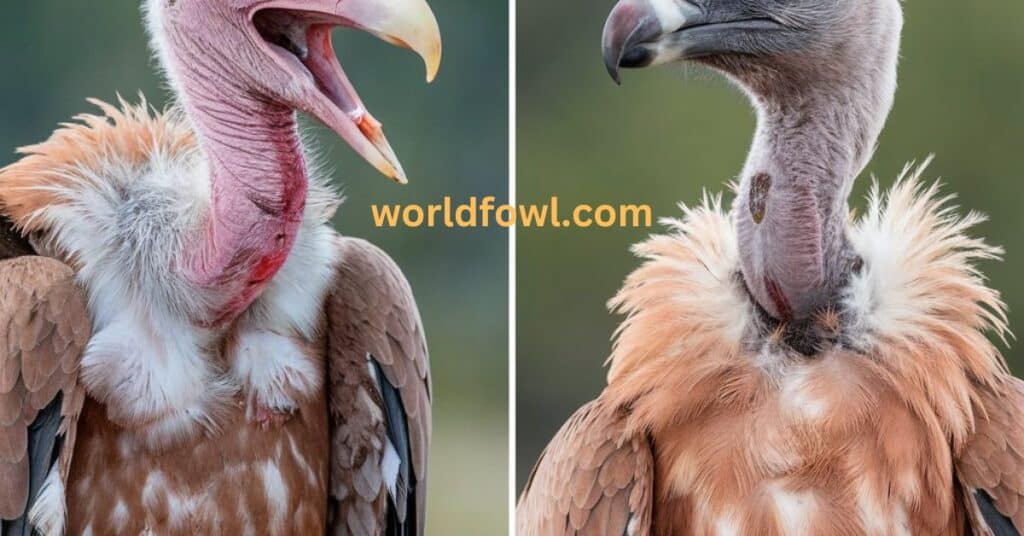
While vultures aren’t aggressive towards humans, they do display certain behaviors that might be misinterpreted as aggression.
Defensive Behaviors
When threatened, vultures may:
- Hiss or grunt: This vocalization is a warning signal, not an aggressive threat.
- Spread their wings to appear larger: This behavior, known as a “horaltic pose,” is primarily used for thermoregulation but can also serve as a defensive display.
- Regurgitate their last meal: This is a defense mechanism to deter predators and lighten their body weight for a quicker escape.
These behaviors are defensive responses aimed at protecting themselves, not aggressive actions intended to harm humans.
Territorial Displays
During breeding season, vultures might become more territorial. However, this behavior is usually directed at other vultures, not humans. Territorial displays may include:
- Wing-spreading displays
- Loud vocalizations
- Chasing other vultures from nesting sites
It’s important to note that these displays are part of natural vulture behavior and not indicative of aggression towards humans.
Nesting and Breeding Season Behavior
Vultures become more protective of their nests during breeding season. If you accidentally get too close to a vulture’s nest, the bird might:
- Make loud vocalizations
- Perform fly-bys to intimidate you
- In rare cases, strike with their beak or talonz
Remember: These actions are defensive, not predatory. The vulture is trying to protect its young, not attack you. Respecting nesting sites and maintaining a safe distance is crucial during breeding season.
The Vulture Diet: What’s on the Menu?
Understanding what vultures eat is crucial to dispelling myths about vultures attack humans. Let’s examine their dietary habits in detail.
Carrion: The Main Course
Vultures are nature’s recyclers, primarily feeding on dead animals (carrion). Their diet includes:
- Deceased wildlife: From small rodents to large mammals
- Roadkill: A common food source in areas with high vehicle traffic
- Livestock carcasses: Particularly in farming regions
Their strong stomach acid, which has a pH as low as 1, allows them to safely consume decomposing flesh that would be dangerous for other animals. This adaptation enables vultures to play a crucial role in preventing the spread of diseases.
Vulture Feeding Behavior
Vultures have several unique adaptations for their scavenging lifestyle:
- Bald heads: This feature helps keep vultures clean while feeding on messy carcasses.
- Strong beaks: Capable of tearing through tough hides and sinews.
- Excellent eyesight: Allows them to spot carcasses from great heights.
- Social feeding: Many vulture species feed in groups, which helps them locate food and protect against predators.
Do Vultures Eat Live Animals?
While vultures prefer carrion, there are exceptions to this rule. Let’s explore these instances in more detail.
Exceptions to the Scavenging Rule
In rare cases, some vulture species may prey on:
- Weak or injured animals: Particularly during food scarcity
- Small reptiles or amphibians: Observed in some Old World vulture species
- Eggs of ground-nesting birds: Reported in Black Vultures
It’s important to note that these behaviors are not common and typically occur when carrion is scarce.
Case Studies of Vultures Preying on Weak or Injured Animals
A 2015 study in Namibia observed black vultures occasionally preying on newborn springbok. The researchers noted:
- This behavior was rare, accounting for less than 1% of observed feeding events.
- It occurred primarily during periods of extreme drought when carrion was scarce.
- The vultures targeted very young or weak animals that couldn’t escape.
Another study in India reported instances of Egyptian Vultures preying on small live prey like lizards and rodents. However, this behavior was infrequent and likely supplemental to their primary carrion diet.
Human Remains: A Grim Reality or Urban Legend?
The question “Do vultures eat humans?” often arises in discussions about these birds. While vultures may scavenge human remains in certain situations, they don’t actively hunt humans.
Forensic Evidence
Forensic studies have shown that vultures may feed on human bodies left exposed in the wilderness. ” vultures attack humans ”This behavior is not an attack but part of their natural role as scavengers. Some key findings include:
- Vultures can significantly accelerate the decomposition process of human remains.
- They typically focus on soft tissues and organs first.
- Vulture activity can complicate forensic investigations by altering crime scenes.
It’s crucial to understand that this scavenging behavior is not unique to humans – vultures treat human remains the same way they would any other large mammal carcass.
Cultural Practices and Vultures
Some cultures, like the Zoroastrians in India, practice sky burials where vultures consume human remains. This is a respected funeral practice, not an attack. Key points about sky burials include:
- They’re considered an environmentally friendly and spiritually significant way to dispose of the dead.
- The practice is central to Tibetan Buddhist traditions in some regions.
- Vulture populations in these areas have adapted to rely partly on these ceremonial practices for food.
These cultural practices highlight the complex relationships between humans and vultures in different societies.
you can read: Why Do Hawks Screech? The Surprising Truth
Vultures and Domestic Animals: A Cause for Concern?
While vultures don’t typically pose a threat to humans, some people worry about their interactions with livestock and pets. Let’s examine these concerns in detail.
Interactions with Livestock
Vultures may scavenge on deceased livestock, which is beneficial for farmers as it helps prevent disease spread. However, there have been rare instances of vultures, particularly black vultures, preying on newborn or weak livestock.
Livestock Predation by Vultures
Reports ofvultures attack humans livestock are relatively rare but do occur. Here are some key points:
- Black vultures are more commonly associated with livestock predation than other vulture species.
- Attacks typically target very young, sick, or injured animals.
- The frequency of attacks can increase during food scarcity or when vulture populations are particularly high.
A study by the USDA found that while vulture predation on livestock does occur, it’s often overstated. Many reported “vultures attack humans” were actually cases of vultures scavenging already deceased animals.
Preventing Vulture-Livestock Conflicts
Farmers and ranchers can take several steps to minimize conflicts with vultures:
- Promptly remove dead livestock from fields.
- Provide shelter for vulnerable animals, especially during birthing seasons.
- Use visual deterrents like reflective tape or predator effigies.
- Implement sound deterrents in problem areas.
- Work with wildlife services to develop tailored management plans.
Do Vultures Attack Dogs and Other Pets?
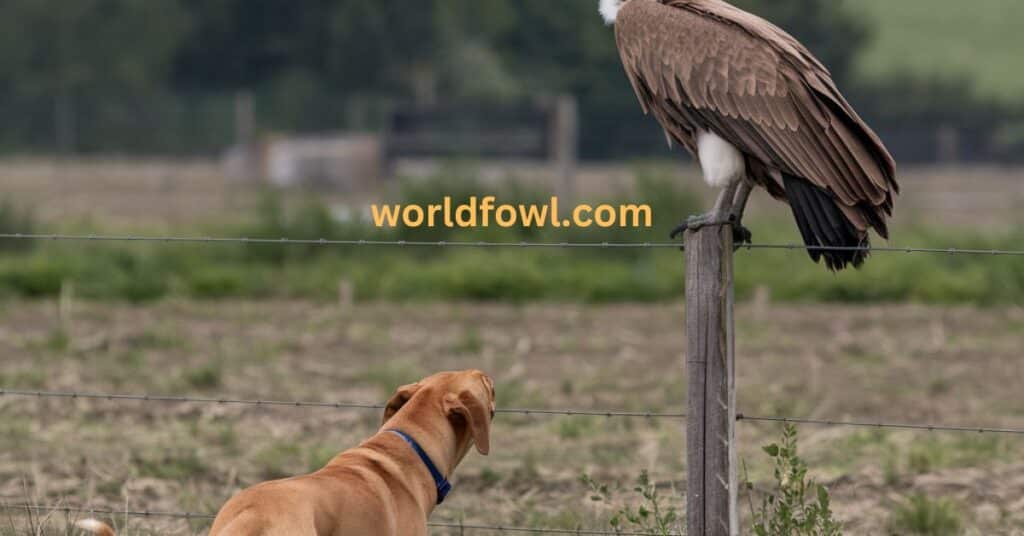
The question “Do vultures attack dogs?” is common among pet owners. While extremely rare, there have been reported incidents of vultures, especially black vultures, attacking small pets.
Reported Incidents
A few cases of vulture attacks on pets have been documented:
- In 2012, a chihuahua in Missouri was reportedly killed by black vultures.
- In 2018, a small dog in Ohio was attacked but survived.
- There have been occasional reports of vultures harassing or attempting to prey on cats and small dogs in rural areas.
It’s important to note that these incidents are extremely uncommon and often occur in areas where vultures have become habituated to human presence or where food sources are scarce.
Preventive Measures for Pet Owners
To protect your pets from potential vulture encounters:
- Keep small pets supervised outdoors, especially in areas with known vulture populations.
- Remove attractants like open garbage or pet food from your yard.
- Use visual deterrents like reflective tape or predator effigies in your yard.
- Provide sheltered areas for pets when they’re outside.
- Be particularly vigilant during vulture breeding seasons when the birds may be more protective of their territories.
Remember, while these precautions are helpful, the risk of a vulture attacking a pet is extremely low. Most vultures will avoid confrontation with live animals whenever possible.
Assessing the Danger: Are Vultures a Threat?
Now that we’ve explored vulture behavior and diet, let’s assess whether these birds pose a real danger to humans and animals.
Risk Assessment
- Are black vultures dangerous? While they can be more assertive than other vultures, they still pose little threat to humans.
- Black vultures may be more likely to prey on weak livestock or small pets compared to other vulture species.
- They’re known to damage property, particularly vehicles, by pecking at rubber and vinyl.
Black Vulture Behavior
Black vultures have some unique characteristics:
- They’re more social than many other vulture species, often feeding and roosting in large groups.
- They lack the keen sense of smell that turkey vultures have, relying more on sight and social cues to find food.
- They’re more likely to feed on freshly dead animals compared to other vulture species.
While these traits can make black vultures seem more aggressive, they’re still primarily scavengers and pose minimal risk to humans.
you may also like :Parrots in Florida – The Complete Guide To Wild Parakeets In Florida
Turkey Vultures: Temperament and Potential Dangers
- Are turkey vultures dangerous? These birds are shy and prefer to avoid human contact.
- Turkey vultures rely more heavily on their sense of smell to locate food, making them less likely to come into conflict with humans or pets.
- They rarely cause property damage.
- They have an exceptional sense of smell, able to detect carrion from over a mile away.
- They’re less social than black vultures, often feeding in smaller groups.
- They prefer more decomposed carrion compared to black vultures.
These characteristics generally make turkey vultures less likely to come into conflict with humans or domestic animals.
Comparing Vulture Risks to Other Wildlife Encounters
To put things in perspective, let’s compare the risk of vulture encounters to other wildlife:
| Animal | Annual Human Fatalities in the US |
| Bees and Wasps | 62 |
| Dogs | 30-50 |
| Cows | 20 |
| Vultures | 0 |
As you can see, vultures pose minimal risk compared to many other animals we encounter regularly. In fact, there are no recorded human fatalities from vulture attacks in the United States.
The Human Factor: When Vultures and People Collide
While vultures don’t actively seek conflict with humans, increasing human development has led to more frequent interactions.
Urban Expansion and Habitat Loss
As cities grow, vultures are losing their natural habitats. This forces them to adapt to urban environments, leading to more frequent human-vulture encounters. Some key points
- Urban areas provide new food sources, like roadkill and open garbage.
- The loss of natural roosting sites pushes vultures into closer proximity with humans.
Vulture Attacks on Property and Vehicles
While not aggressive towards humans, vultures can cause property damage:
- Pecking at rubber seals on vehicles: This behavior is thought to be related to the birds’ curiosity or attempts to sharpen their beaks.
- Damaging roof shingles or outdoor furniture: Large groups of roosting vultures can cause significant wear and tear.
- Leaving droppings on buildings and structures: This can be both a nuisance and a health concern.
Case Study: Vulture Damage in Florida
In 2013, a study in Florida documented extensive vulture damage to vehicles and buildings:
- Over 50% of survey respondents reported damage to vehicles.
- Common types of damage included torn windshield wipers, scratched paint, and damaged rubber seals.
- The estimated cost of damage ranged from $100 to over $1000 per incident.
Legal Protections for Vultures and Human-Wildlife Conflict Resolution
Vultures are protected under the Migratory Bird Treaty Act in the United States. This means it’s illegal to harm or kill them without a permit. To resolve conflicts:
- Use non-lethal deterrents like visual scare tactics or sound devices
- Modify habitats to make them less attractive to vultures
- Consult with wildlife experts for persistent problems
Effective Vulture Management Strategies
Some successful strategies for managing vulture conflicts include:
- Installing angled surfaces on flat roofs to prevent roosting
- Using motion-activated sprinklers to deter vultures from specific areas
- Implementing community-wide garbage management programs to reduce food attractants
- Educating the public about vulture behavior and the importance of these birds in ecosystems
By employing these methods, many communities have successfully reduced vulture-related conflicts while still protecting these important birds.
Vulture Conservation: Why These Birds Matter
Despite the misconceptions surrounding vultures, these birds play a crucial role in our ecosystems. Understanding their importance is key to promoting their conservation.
Ecological Importance of Vultures
Vultures provide several key ecosystem services:
- Disease control: By consuming carrion, vultures prevent the spread of diseases like rabies, anthrax, and botulism.
- Nutrient recycling: Vultures help return nutrients from dead animals back into the ecosystem.
- Keeping environments clean: They efficiently remove carcasses that would otherwise decay and potentially contaminate water sources.
- Supporting other scavengers: Vultures often lead other scavengers to food sources.
A study in India demonstrated that the decline in vulture populations led to an increase in feral dogs and rats, which in turn caused a spike in rabies cases in humans.
Threats to Vulture Populations
Many vulture species are facing serious threats:
- Habitat loss: Due to human development and agricultural expansion
- Poisoning: From lead ammunition in carrion and deliberate poisoning by poachers
- Collisions: With wind turbines, power lines, and vehicles
- Food scarcity: Due to changes in livestock management practices
- Climate change: Altering habitats and food availability
The International Union for Conservation of Nature (IUCN) lists several vulture species as critically endangered, including the White-backed Vulture and the Indian Vulture.
Conservation Efforts and Success Stories
Efforts are underway to protect vulture populations:
- Captive breeding programs for critically endangered species
- Lead ammunition bans in some areas to reduce poisoning
- Education programs to improve public perception of vultures
- Establishment of “vulture restaurants” to provide safe food sources
Case Study: California Condor Recovery
The California Condor, North America’s largest vulture, was on the brink of extinction in the 1980s. Thanks to intensive conservation efforts:
- The population has grown from 22 individuals in 1982 to over 400 in 2021
- Condors have been successfully reintroduced to the wild in California, Arizona, and Baja California
- Ongoing challenges include lead poisoning and habitat loss, but the species’ recovery is considered one of conservation’s great success stories
This case demonstrates that with dedicated effort and resources, even severely endangered vulture species can be brought back from the brink of extinction.
Living with Vultures: Tips and Best Practices
As human-vulture interactions become more common, it’s important to know how to coexist peacefully with these birds.
How to Deter Vultures from Your Property
If vultures are causing issues on your property, try these humane deterrent methods:
- Remove food sources:
- Secure trash in animal-proof containers
- Clean up fallen fruit and pet food
- Properly dispose of dead animals
- Use visual deterrents:
- Reflective tape
- Predator effigies (owl or hawk decoys)
- Balloons with large “eyes” printed on them
- Install motion-activated devices:
- Sprinklers
- Lights
- Sound emitters (with varied sounds to prevent habituation)
- Modify roosting sites:
- Prune trees to remove favored perches
- Install angled surfaces on flat roofs
- Use bird spikes on ledges (ensuring they won’t harm the birds)
- Create physical barriers:
- Netting over sensitive areas
- Fencing around livestock
Remember, the goal is to discourage vultures from frequenting your property, not to harm them.
What to Do If You Encounter a Vulture Up Close
If you find yourself face-to-face with a vulture:
- Stay calm and avoid sudden movements
- Slowly back away to give the bird space
- Don’t attempt to touch or feed the vulture
- If the vulture seems injured or in distress, contact a wildlife rehabilitator
Reporting Unusual Vulture Behavior to Wildlife Authorities
If you observe vultures behaving unusually or aggressively, report it to your local wildlife authorities. This information can help with conservation efforts and conflict resolution. When reporting, provide:
- Date, time, and location of the encounter
- Description of the vulture’s behavior
- Any photos or videos, if safely obtained
- Information about local conditions (e.g., nearby food sources, nesting sites)
Your observations can contribute valuable data to vulture research and management efforts.
Conclusion: Embracing Our Feathered Clean-up Crew
In answering the question “Do vultures attack humans?“, we’ve uncovered the truth about these misunderstood birds. vultures attack humans are not the aggressive, dangerous creatures often portrayed in media. Instead, they’re shy, intelligent birds that play a vital role in our ecosystems.
While vultures may occasionally cause property damage or, in very rare cases, pose a threat to small pets, they generally avoid conflict with humans. By understanding vulture behavior and taking simple precautions, we can coexist peacefully with these important scavengers.
As we face growing environmental challenges, it’s crucial to appreciate and protect vultures. These birds aren’t just nature’s clean-up crew – they’re a vital part of a healthy, balanced ecosystem. By dispelling myths and promoting education, we can ensure a future where humans and vultures thrive together.
The next time you see vultures soaring overhead, remember their important role in our world. These birds, often maligned and misunderstood, are working tirelessly to keep our environments clean and healthy. By learning to live alongside vultures and appreciating their unique adaptations and behaviors, we can foster a greater connection with the natural world around us.
FAQs:
Can vultures smell death?
Yes, some vulture species have an excellent sense of smell. Turkey vultures, in particular, can detect the scent of decaying flesh from over a mile away. Their olfactory bulbs are highly developed, allowing them to locate carrion even in dense forests where visual detection would be difficult.
How long can vultures go without eating?
Vultures can survive for up to two weeks without food, thanks to their efficient digestive systems and ability to store fat. This adaptation allows them to endure periods of food scarcity and travel long distances in search of carrion.
Do vultures carry diseases?
While vultures feed on carrion, their strong stomach acid kills most pathogens. In fact, vultures actually help prevent the spread of diseases by consuming infected carcasses. Their digestive system is so potent that it can neutralize anthrax spores and other dangerous bacteria.
Why do vultures urinate on their legs?
This behavior, called urohydrosis, helps vultures cool down and kill bacteria on their legs. The uric acid in their urine has antibacterial properties, which helps keep their legs clean as they walk through carrion. This adaptation is particularly important for vultures living in hot climates.
How do vultures find their food?
Vultures use a combination of keen eyesight and, in some species, an acute sense of smell to locate carrion. They also watch for other scavengers and use social cues from other vultures. Some interesting facts about vulture food-finding abilities:
- Turkey vultures can detect carrion from over a mile away using their sense of smell.
- Vultures can spot a 3-foot carcass from 4 miles away while soaring at an altitude of 15,000 feet.
- They often use thermal air currents to soar and search for food, conserving energy in the process.
Understanding these remarkable abilities helps us appreciate the unique adaptations that make vultures such efficient and important scavengers in our ecosystems.

Henry James is a seasoned blogger and a passionate storyteller on “World Fowl.” With years of experience crafting engaging content, he brings a unique blend of expertise and creativity to his writing. Henry specializes in exploring diverse topics with depth and clarity, captivating readers worldwide.

